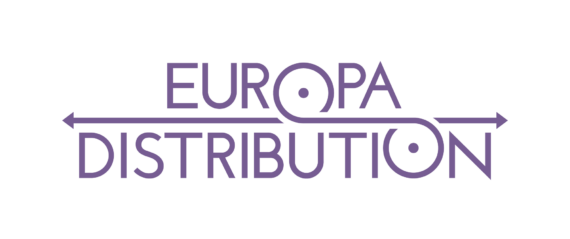By Davide Abbatescianni
During the first Green Distribution Workshop organised by Europa Distribution, the participants contributed to the creation of a toolbox of good practices to make business strategies, office work and travel arrangements more environmentally friendly.
On 7 April, Europa Distribution has organised its first Green Distribution Workshop. The event, held online, saw the participants sharing their best green practices for the distribution sector. While the latter is one of the most sustainable industries in the film sector, three big clusters requiring action were identified, namely office practices, distribution business strategies and markets and travel arrangements.
The aim of the discussion was to create the first draft of a toolbox containing the best solutions (plus some good alternatives) to make European distribution greener. It is worthwhile mentioning that the toolbox must be intended as an evolving platform and its first findings will serve as a common ground for the next discussions on the topic.
The first cluster – office work – covers a wide range of items such as supplies, printing, food, commuting and electronic devices. The first recommendation is to reduce energy consumption by choosing green sources of electricity; using energy-efficient bulbs/LEDs; implementing systems of heat control in each room (including smart heating with tools such as Google Nest or Alexa); using night shift modes for laptops and computers’ screens (great also at reducing eye-fatigue) and opting for eco-programmed dishwashers. Alternative (and concurrent) options are to wear warmer clothing while maximising the use of natural light.
The environmental impact of printing activities can be reduced by choosing recycled paper and greener inks as well as by implementing an internal “out of paper policy” requiring the use of paper to be reduced to a bare minimum, with little or none print magazine subscriptions. The presence of a few shared e-readers or tablets in the office can also contribute to limit unnecessary paper consumption, in particular for script reading activities.
In terms of kitchen supplies, the regular recycling of plastic, metal and paper is essential, and while glass bottles might appear as the best option compared to plastic ones, their impact in terms of transportation is higher as they are much heavier. Speaking about meals, it is recommended to include both vegan and vegetarian menus, to choose reusable tableware, to source food from local and regional suppliers as well as to purify tap water with a Brita or other similar devices.
Meanwhile, employers should encourage commuting with bikes and public transportation, while guaranteeing a high level of adaptability when it comes to remote working, in particular for parents and caregivers.
They should also encourage the purchase of second-hand and sustainable electronic devices; the creation of email sorting/deletion systems; the reduction of the attachments’ size; the deactivation of social media notifications as well as the use of green search engines and servers for web hosting. Moreover, another option to keep in mind is to repair, whenever possible, existing devices instead of buying brand-new ones.
The second set of practices, applicable to the sector’s business strategies, is in line with the previous recommendations. The use of paper should be significantly reduced, with most of the promotional materials – e.g., leaflets, press kits and invitations – being delivered electronically. When printed materials are absolutely necessary, these should be produced on recycled paper. Moreover, the use of QR codes should be encouraged to access additional, extended content.
However, these rules will need further scrutiny, since digital posters, for example, consume a certain amount of energy and they may not be necessarily more eco-friendly than recycled paper. On the other hand, posters and leaflets printed on recycled paper are generally still of poor quality, and QR codes are less user-friendly for elderly people. Additional consultations and data will help to make more informed decision and to find the right balance between the two approaches.
Next, promotional interviews and online Q&As should ideally take place via Zoom and livestreams or, alternatively, talents should travel green using trains instead of planes. For premieres, invitations should be printed on reusable cards, whilst DVDs may be packed in paper envelopes similar to those which were once used for CDs – the latter solution, however, poses some problems since such packaging is more fragile than that of a normal DVD cover.
Moreover, servicing of DCPs should be digital, with a standardised maximum size and the option to recycle them for further use. Delivery of the files – possibly compressed – should also be completed from a website/platform and servers owned by the distributor. However, this step may be hard to implement for example in France, since distributors are forced to pass through providers in charge of handling DCPs.
On the last topic – namely, markets and travel arrangements – participants agreed on avoiding long distance travels (with a few, select exceptions), reducing travels by plane and, finally, to offset emissions. Trains should replace domestic flights and trips between neighbouring countries, including journeys lasting up to six hours. Night train services should also be evaluated as viable travel options, whenever possible. For some events, including those organised by Europa Distribution, the online format should be considered. Informed decisions can be made by using CO2 calculators, such as the one available on myclimate.org. Finally, planting trees can also help to offset emissions, and initiatives such as the ones promoted by reforestaction.com and grainedevie.org may come in handy to achieve this goal.
Europa Distribution will organise a new Green Distribution Workshop in 2023, to be held online again. The initiative’s main aim is to keep the discussion about the sector’s sustainability active and vibrant, with the prospect of sharing new, better green practices along with fresh case studies on environmental films during next year’s event. The first version of the toolbox will serve as a starting point for developing the network’s official green chart.
With the support of the Creative Europe MEDIA Programme of the European Union
